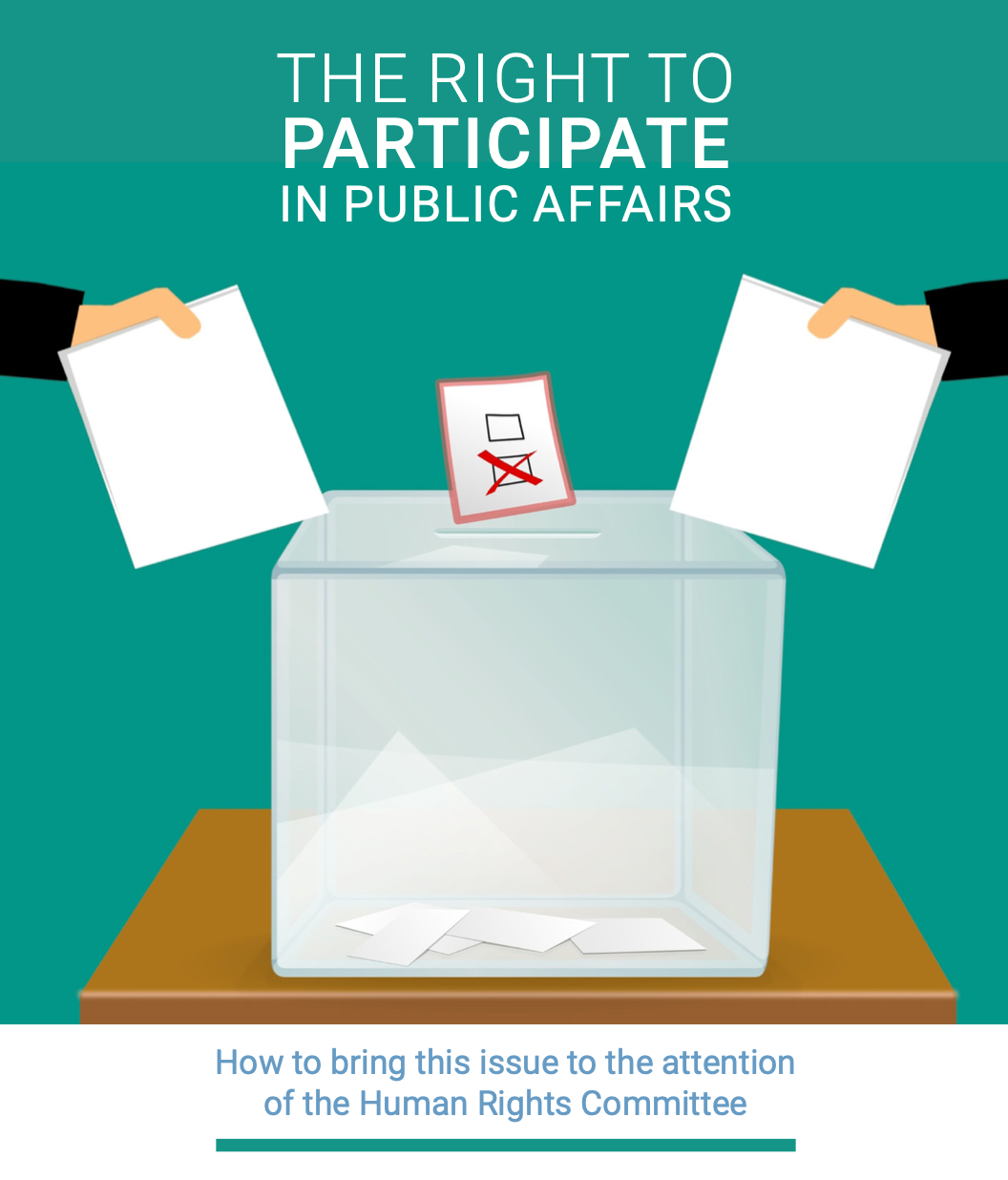Guidelines on the right to participate in public affairs
The Centre developed guidelines for civil society regarding art. 25 of the ICCPR
 Cover of the guidelines
Cover of the guidelines
Art. 25 guarantees the right to participate in public affairs. This includes of course the right to vote, that should be guaranteed to everyone, but also other related rights such as, for example, the right to be elected and the right to have access to public service. Art. 25 has also an indirect impact on many other important rights included in the ICCPR: the right of peaceful assembly, the prohibition of discrimination, the equality of women and men etc.
Despite its pivotal importance, many countries still do not fully comply with this article. In many contexts, post-elections violence remains common. There are also many examples where vulnerable groups such as people with disabilities or indigenous minorities do not have access to or cannot put in practice the right to vote. Women’s participation also remains a problem in many countries, with boundaries preventing women from participating effectively in public affairs.
The Centre observed that some of these issues were not addressed by the Human Rights Committee in the Concluding Observations. Moreover, not many individual cases of the Committee deal directly with art. 25. In order to respond in part to this problem, the Centre decided to work actively on this issue with the ultimate aim of improving the visibility of this article in the work of the Human Rights Committee.
In particular, the Centre worked with civil society organisations on how to report violations linked to Art.25 to the Human Rights Committee. For this aim, the Centre produced a document entitled “The right to participate in public affairs: how to bring the issue to the attention of the Human Rights Committee”. The guidelines explain the scope of Art.25 and give guidance to civil society on how to engage with the Human Rights Committee on this issue, covering written submissions, procedures for individual complaints and other alternative mechanisms for engagement. The document also contains research showing the aspects of the article that are frequently covered by the Human Rights Committee – such as, for example, women’s participation in public affairs – and the ones that are sometimes overlooked. This can help civil society to identify gaps in the reporting procedure. The guidelines were translated into French and Spanish.
As part of this project, the Centre also organised several webinars with lawyers and litigators from several countries. The aim of these webinars was to introduce them to the guidelines, and to raise awareness about the individual communications procedure with the Human Rights Committee.

